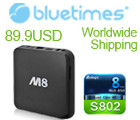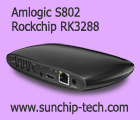I would link to the Masterful John C Dvorak for some very clever guessing: http://www.marketwatch.com/story/is-googles-new-os-more-than-just-a-bluff?siteid=
I do not believe John C Dvorak is 100% right in his funny column, though I do believe he is right when he says that this is all a super clever public relations trick put on by Google and that all of it is just the Google OS coming up. John C Dvorak is mostly right about most things that he says.
I believe it will be released open sourced in a couple of months, with the first ARM Cortex A8 and Tegra based laptops.
Android 2.0 and Chrome OS is the same thing. It doesn’t matter what Google says and what bloggers think. There is only one way Google is working towards:
– Making full Chrome browser work on ARM embedded laptops even better than on x86 based laptops.
Now, you might know me as the contiunous x86 basher, I kind of am. But what I believe Google wants is more competition in both hardware and software space for PCs and laptops. This is what Google OS is all about.
The reasons Google might caution Google OS on ARM fans to wait for are a few technological breakthroughs which Google might need before the worldwide availability of perfect $100 Google laptops can happen:
1. ARM Cortex A8 needs to be fast enough for a full browser. If it’s not, then Google needs to wait for broad availability of ARM Cortex A9 starting early next year.
2. Google and the whole ARM community needs to optimize browsers, flash, HTML5 features on DSP and GPU cores of laptops, especially ARM laptops, so that $100 laptops can run a FULL browser and cloud computing experience. Nvidia, Qualcomm, Freescale, Texas Instruments were promising hardware acceleration for the browser, Flash and HTML5 at Computex, but they didn’t really show it yet. I believe they can make it work as a 2003 X86 based browser (something like a 512MB RAM or less system), though that may not be enough for the full mass market to adopt the first version, thus Google might prefer to wait for full launch for it to work better than 2009 x86 browsers.
3. Google wants better connectivity. Google is strongly hoping to start implementing White Spaces worldwide as soon as possible, this will enable free unlimited wireless Internet for all (and destroy all ISPs and telcos in the process). Optimized Connected standby features for ARM devices might only really start working perfectly early next year. First generation ARM Google OS laptops might not have LED lights that turn on instantly on incoming emails, feeds, pings, IMs, VOIP calls and other such crucial presence and social networking web apps which Google needs on the Google laptops for it to really feel like revolutionary products compared to the established systems.
4. Political aspects of this might start being put into places early next year as well such as real competition on HSDPA connectivity, maximum prices of $20 per month pre-paid data-only plans for most of the world and no more contract-plans and other voice and SMS plans forced onto consumers by monopolistic telcos. Also political decision on net neutrality, white spaces, sustainable energy consumption of consumer electronics and servers and crucial for Google to succeed on this global cloud computing plan.
I see it as inevitable, that Google will create Google OS, a super tiny embedded Linux open source OS less than 50 Megabytes for the whole highly optimized OS, and that in a couple of months we will start seeing it ship on $150 ARM based laptops with all types of screen sizes (large screens and keyboards aren’t much more expensive than small ones, consider $50 upgrade for 15″ and full keyboard instead of 10″ and tiny netbook keyboard).
Those $150 Google laptops will be running ARM chips by half a dozen competing ARM processor manufacturers and manufactured by all the major laptop manufacturers in the world. Effectively putting out of business all of Microsoft, Intel and Apple. Together with most of Silicon Valley. That is for the better. For the first time billions more people will have access to this technology very quickly and we will all for the first time really find amazing new ways to use the technology.
As for technical details on Native versus Cloud apps. I believe natively you will have everything needed for a full computing experience. Basically it’s not just the browser, it’s not just flash support, it’s not just HTML5 including native code plugins for the browser and 3D in the browser, it’s like providing you the hypervisors, user interface APIs, clever caching and seamless interface optimizations, which will enable you to not only have a full 2009 x86 style computing experience, it will plug you into the full cloud, in fact giving you infinately more computing power for all the most processor intensive tasks that the biggest professionals would want to use. You can definitely encode videos using grid server encoding, I have been doing that for over 2 years for all my HD video encoding needs, just have a fast enough upload to upload your source files from your camcorders. Google Gears type database and web application caching not only lets you do things while offline, it can turn all web applications into feeling exactly like native applications, they respond instantly without having to wait for any online service to stream the user interfaces back at you. The user interfaces will be locally cached on the machine, only processed data is streamed from the cloud, and clever pre-loading algorithms mostly will not make you feel any difference than processing everything using a local X86 processor. In fact, things will feel much faster cause you will be able to have the power of an unlimited amount of cloud servers to render, process and encode any of your media intensive tasks.



